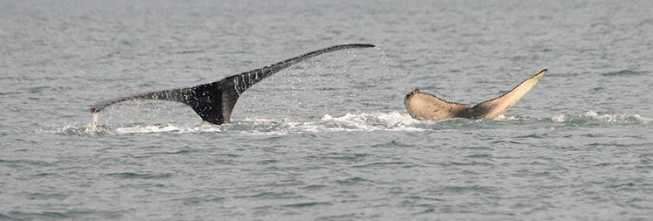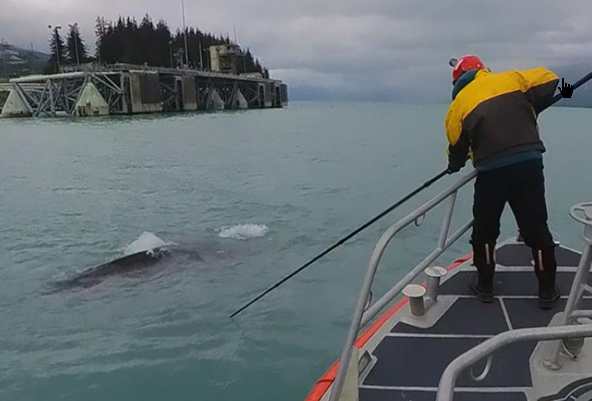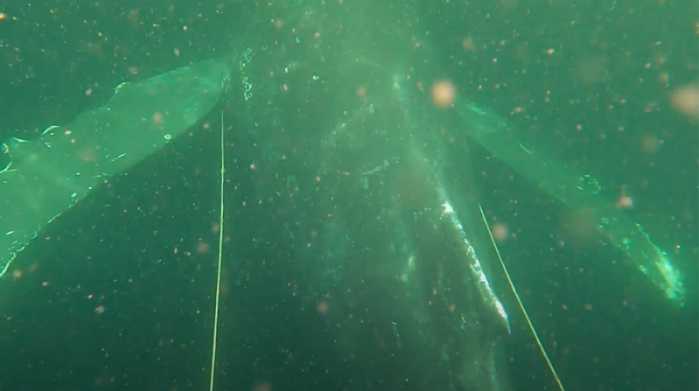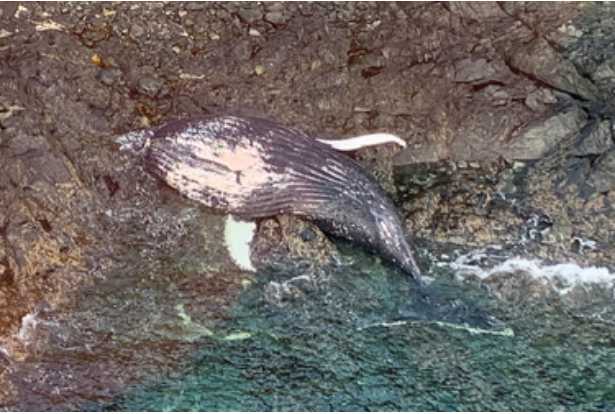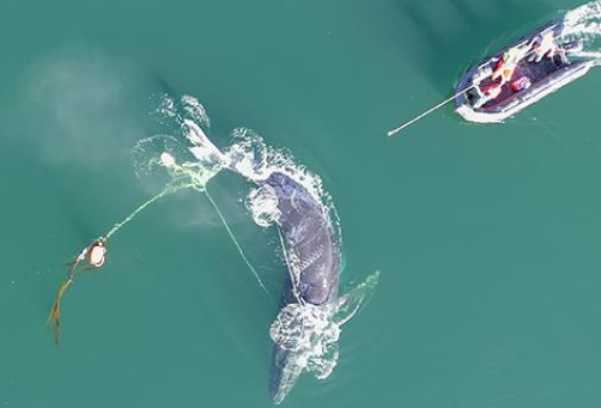Mandy Keogh, the Alaska Region Stranding Coordinator, discusses team members and their vital roles.
This small Alaska-based group works with partners throughout Alaska to respond quickly to document marine mammal strandings. They collect data to understand the animal and population health parameters, determine cause of death, and share this knowledge with the public and scientific community. The stranding team works with NOAA partners to update guidance for protecting marine mammals, people, and property.
If you see a stranded, injured, entangled, or dead marine mammal, call the NOAA Fisheries Alaska Region 24-hour Stranding Hotline: (877) 925-7773.
Can You Tell Us About the Stranding Team?
We are biologists with the NOAA Fisheries Alaska Regional Office who work to support our stranding network partners in responding to stranded or entangled marine mammals throughout Alaska. We receive reports from the public through our stranding hotline, using the reported information to determine what type of response is needed.
If an animal can safely be accessed, we work with our Alaska Marine Mammal Stranding Network partners in the local area or send stranding members to respond. One goal is to identify the species, sex, and age class, and to collect shape and size measurements from the carcass.
Depending on the state of decomposition, we may do a partial or complete necropsy (animal autopsy) to attempt to determine the cause of death and document any signs of illness or injury. We search for evidence of human interactions, such as entanglement or vessel strike injuries, that may have contributed to the animal’s death. We document all the evidence, and collect samples that are archived or shared with researchers.
Where is the Stranding Team Located, and What Role Does Everyone Play?
Our team members are located in our Juneau and Anchorage offices. In Juneau, I am the Alaska Region Stranding Coordinator. Sadie Wright has been part of the stranding team since 2013 and often plays a lead role in coordinating our carcass surveys and stranding responses. We also have Dr. Kate Savage, a veterinarian and NOAA affiliate provides veterinary expertise.
In Anchorage, we have Barbara Mahoney who has been with the stranding program the longest and has an incredible historic knowledge. She responds or coordinates responses for western Alaska and Cook Inlet strandings. Our newest team member, Caroline Cummings, contributes to data management and outreach and will help coordinate and respond to stranded marine mammals near Anchorage. Past members have also included Barb Lake in the Juneau office and Bonnie Easley-Appleyard in our Anchorage office.
Team members have more than 50 years of combined experience in marine mammal stranding responses. Responses require data collection and management, communication and outreach, and detailed documentation and reporting.
We work to support our stranding network partners and, when needed and possible, assist with their responses to stranded marine mammals.
[content id=”79272″]





